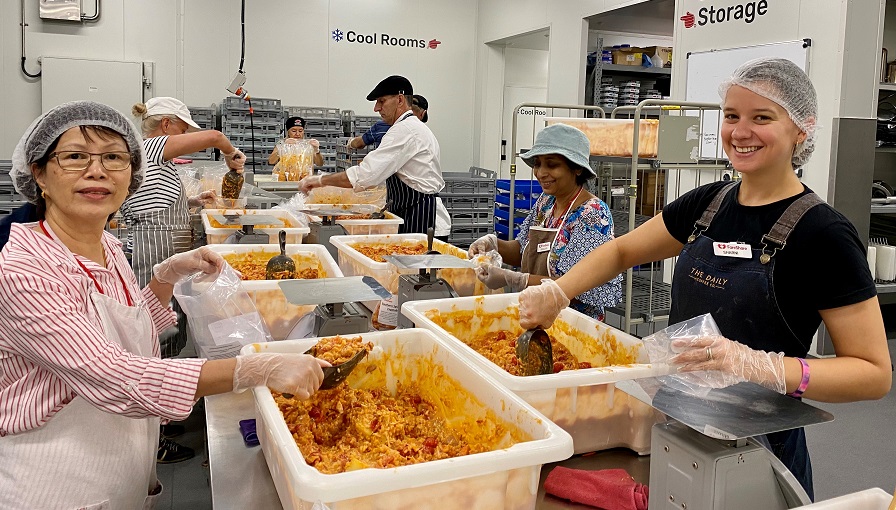Melbourne, like many cities across Australia, has been significantly impacted by the rising cost of living over the past few years. Several factors, including the aftermath of the pandemic, have contributed to this economic shift, making it increasingly challenging for many residents to make ends meet. The rise in living expenses has highlighted the urgent need for accessible food relief in Melbourne.
The Increasing Cost of Living in Melbourne
The Australian Bureau of Statistics tracks the cost of living through the Consumer Price Index (CPI), which measures the average changes in prices of common household goods and services. Recent data reveals that from 2022 to 2023, Melbourne experienced a 6.9% increase in the cost of living. This is a substantial rise compared to the 4.0% increase from 2021 to 2022 and the modest 1.4% from 2020 to 2021.
This surge in expenses has put considerable financial pressure on many Melbourne residents. Essentials such as rent, groceries, transportation, and healthcare have become more expensive, making it difficult for some individuals and families to maintain their standard of living. In response to these challenges, community-driven food relief programs have become more crucial than ever.
Community-Driven Food Relief Programs
One of the longstanding initiatives providing food relief in Melbourne is the Food For Life Melbourne program. Established decades ago, this program has been a vital resource for those in need, offering free and low-cost meals across the city. The program has a history of stepping up during crises, including the Black Saturday bushfires in 2009 and the peak of the pandemic lockdowns.
Food Distribution in Melbourne
The Food For Life Melbourne program operates from a central kitchen at a temple in Albert Park, distributing meals three times a day, seven days a week. This service is available to anyone in need, offering breakfast, lunch, and dinner to all who visit the temple. Additionally, every Sunday, free meals are distributed at the South Melbourne Market, located at the corner of Cecil and Coventry streets, from 5 pm. These meals are made possible through the support of the City of Port Phillip.
The meals provided are vegetarian, with some options containing dairy, nuts, or gluten. Those with specific dietary requirements are encouraged to speak with the cooks to find suitable options.
Crossways Vegan/Vegetarian Restaurant
Another essential component of food relief in Melbourne is Crossways Vegan/Vegetarian Restaurant, located in the city’s CBD. For over forty years, Crossways has been offering affordable, all-you-can-eat vegetarian and vegan meals. The restaurant operates from Monday to Saturday, from 11:30 am to 8 pm, providing a reliable and cost-effective dining option for many.
Crossways serves as both a dining venue and a hub for preparing meals distributed through the Food For Life Melbourne program. This collaboration ensures a steady supply of nutritious food for those facing financial hardships.
Conclusion
The rising cost of living in Melbourne has made food relief programs an essential service for many residents. Initiatives like the Food For Life Melbourne program and Crossways Vegan/Vegetarian Restaurant play a crucial role in supporting the community by providing accessible, nutritious meals. These programs demonstrate the power of community-driven efforts in addressing food insecurity and helping individuals navigate economic challenges.

